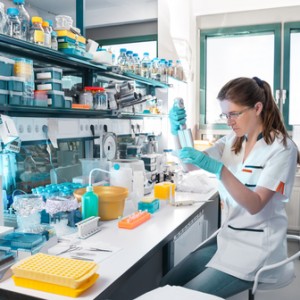Mouse Fat Stem Cells May Be Beneficial for Studying Transplantation in Multiple Sclerosis
Written by |

 Researchers in Spain have found that specific fat stem cells from mice could be excellent tools for studying transplantation of stem cells in autoimmune diseases, such as multiple sclerosis (MS). The work was published in the December 12th issue of the journal, Stem Cell Research & Therapy.
Researchers in Spain have found that specific fat stem cells from mice could be excellent tools for studying transplantation of stem cells in autoimmune diseases, such as multiple sclerosis (MS). The work was published in the December 12th issue of the journal, Stem Cell Research & Therapy.
The type of cell is called a “mesenchymal stem cell” or MSC for short. They are found in adults in the bone marrow, but can also be found in other regions like the umbilical cord or regular blood in the circulatory system, as well as the fallopian tubes and lungs.
Scientists are avidly studying these cells for the possible treatment of autoimmune diseases like MS because of their ability to change into almost any cell type. They eventually would like to see whether these cells can be used to treat disease in humans. According to the study authors, “The ultimate goal in MSCs research is to treat human patients at the clinic with their own MSCs, since autologous transplantation provides two main theoretical advantages: a minimization of the risk of transmission of infectious diseases and an increased efficiency in the absence of rejection by the patient’s immune system.”
If people could use their own MSCs to treat disease, rejection of the cells due to immune responses would be brought to a minimum.
With this idea in mind, researchers decided to test whether cells taken from the fat of mice (adipose tissue) would have the qualities needed for MSCs. This was not just any mouse, but a specific type of mouse called the SJL/JCrl mouse strain, which has been studied in research on retinal degeneration and also in genetically-modified mice (transgenic). This animal was compared to the more commonly-studied C57BL/6 mouse strain.
[adrotate group=”1″]
The scientists, led by Carmen Marin-Bañasco of the Instituto de Biomedicina de Málaga, examined how the stem cells from the SJL/JCrl mouse grow, how quickly they develop, what shapes they take on, and different markers on the surface of the cells that could tell them what type of cell they turn into. In the most critical experiment, the scientists tried transplanting mice with the stem cells that had a mouse version of relapsing-remitting multiple sclerosis, known as experimental autoimmune encephalomielitis (RR-EAE).
Based on their experiments, these particular fat cells had the shape, growth rate, and other cell characteristics that are classic for a potential MSC. Transplanting the fat stem cells helped the mice with the experimental form of MS, by reducing markers of inflammation in the spinal cord and brain and making the nervous system tissue take on a less-diseased appearance.
The authors concluded that the fat cells in this type of mouse might be useful for testing transplantation in animals, before researchers conduct similar studies in humans. Similar types of cells would then need to be studied in greater detail in humans, but could eventually be useful for “their application as promising therapeutic tools in experimental medicine for autologous transplantations.” Fat cells in humans might eventually be good for transplantation from the same person that provided the fat, to treat or possibly even cure their disease.


